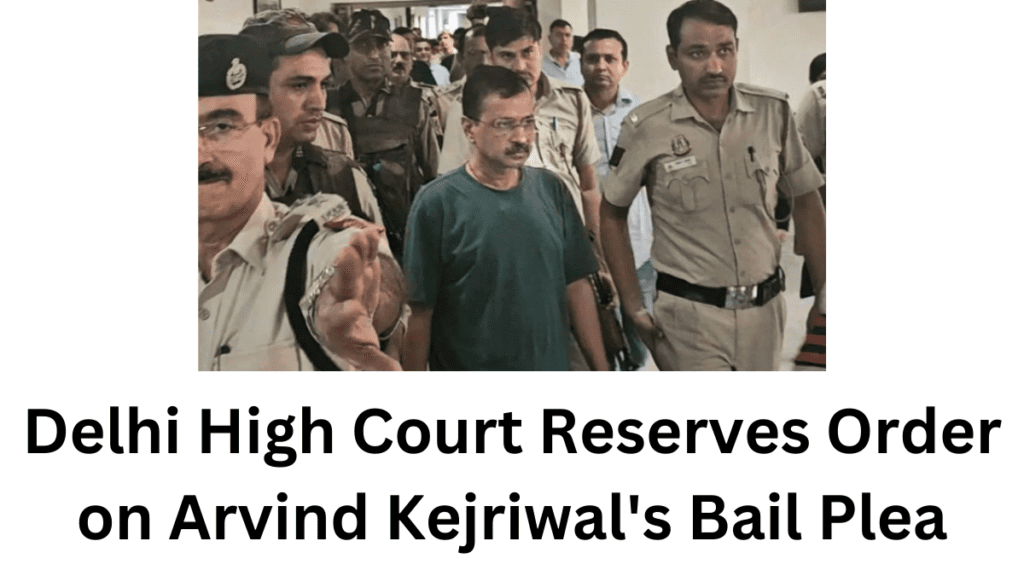On Monday, the Delhi High Court reserved its order on Chief Minister Arvind Kejriwal’s regular bail plea in a case related to the excise policy. The case involves allegations against Kejriwal and others for their roles in formulating and implementing the policy.
Arguments from the CBI and Kejriwal’s Defense
The Central Bureau of Investigation (CBI) had filed a chargesheet against Kejriwal and others, but Kejriwal’s lawyer, Senior Advocate Dr. Abhishek Manu Singhvi, argued that simply filing a chargesheet does not automatically disqualify someone from getting bail. Singhvi also opposed the CBI’s suggestion that Kejriwal should seek bail from the trial court instead of the High Court.
CBI’s Accusations
Advocate DP Singh, representing the CBI, told the court that they had found new evidence against Kejriwal. He stated that a key witness, IAS officer C Aravind, testified that Vijay Nair, an accused in the case, brought a copy of the excise policy to be entered into the computer while Kejriwal was present. The CBI argues that this indicates Kejriwal’s direct involvement in the policy’s creation.
The CBI chargesheet named six individuals, including Kejriwal. However, only Kejriwal has been arrested so far.
Defense by Abhishek Manu Singhvi
Singhvi highlighted several points in Kejriwal’s defense:
- Previous Bail Grants: He noted that Kejriwal had already been granted bail three times in a related case handled by the Enforcement Directorate (ED).
- Lack of New Developments: Since Kejriwal’s arrest by the CBI, there have been no significant new developments or confrontations in the case.
- No Direct Evidence: Singhvi argued that there is no direct evidence linking Kejriwal to any wrongdoing. He pointed out that the CBI has often focused on Vijay Nair, who has already been granted bail in the CBI case.
- Policy Creation Process: Singhvi emphasized that the excise policy was the product of deliberations by nine inter-ministerial committees and was approved by multiple officials, including the Lieutenant Governor. He argued that if Kejriwal is accused, then by the same logic, all other signatories, including the Lieutenant Governor and 50 bureaucrats, should also be considered co-accused.
- Comparison of Publicity Spending: Singhvi questioned the focus on AAP’s spending on publicity, mentioning that the ruling party has spent much more on publicity without similar scrutiny.
CBI’s Counterarguments
Special Public Prosecutor DP Singh countered Singhvi’s points by stating that the approval from the Lieutenant Governor was not genuine, as the officers involved manipulated the entire process. He argued that the case’s specifics and evidence should not be dismissed lightly.
The Delhi High Court has reserved its decision on whether to grant regular bail to Arvind Kejriwal. The court’s ruling will determine the next steps in this high-profile case. The outcome will be closely watched as it involves a prominent political figure and significant legal arguments.
Read this too – Paris Olympics 2024: PV Sindhu Shines with Dominant Victory over Fathimath Abdul Razzaq
People loved to read – How to catch cheaters on iPhone

